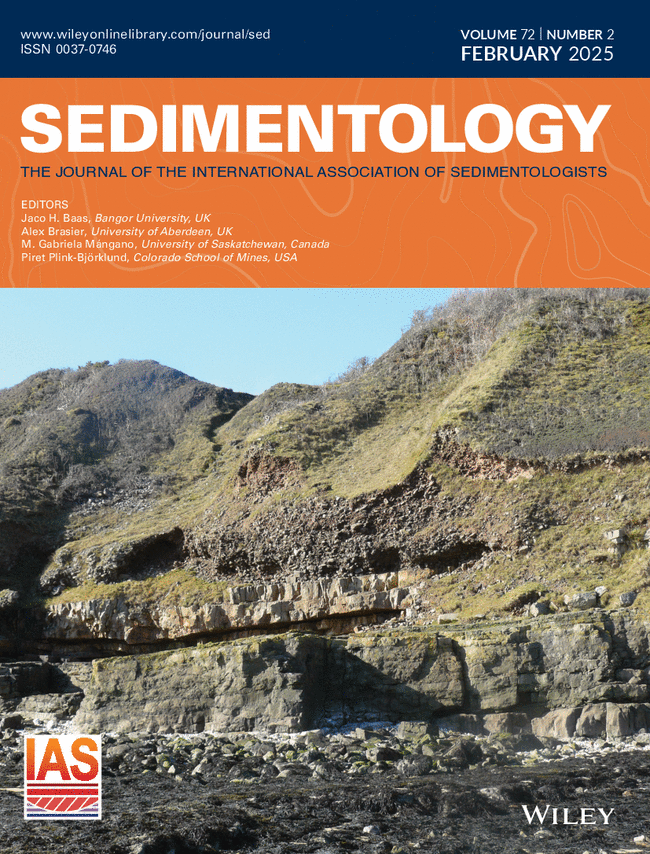The chief editors of the journal Sedimentology have resigned, along with nearly a third of its associate editors, as the society running the title amended its publishing contract.
The International Association of Sedimentologists (IAS), a scientific society based in Belgium, owns the journal and contracts with Wiley to publish it.
The IAS had run an operating deficit since its 2021-22 fiscal year, and began discussing “legal, financial, and strategic considerations” in October 2023, according to a letter from IAS acting president Daniel Ariztegui to its members. These moves included changes to the handling of manuscripts and copy-editing at Sedimentology and an amendment to the society’s contract with Wiley.
The journal’s chief editors and many associate editors opposed the changes, and resigned their positions, according to a February 10 letter Adam McArthur of the University of Leeds posted on LinkedIn.
“These are quite extraordinary and troubling times in the IAS,” McArthur, one of the resigning editors, wrote in his post.
“We, like the [contributing editors] who resigned, believe that the move to a Wiley-led model, and the loss of all internal editorial assistance is extremely detrimental to the future of Sedimentology,” the resignation letter stated, citing changes to the role of the journal’s longtime editorial office manager.
The letter also faulted the IAS leadership for its decision-making process:
More consultation was appropriate, and a wider base of consent should have been built before actions were taken. Had it been so, the situation where all the Chief Editors for Sedimentology have resigned because they felt that their positions had become untenable would not have arisen.
McArthur has not responded to our queries, nor have the four former chief editors of the journal.
Sedimentology joins our Mass Resignations List, which documents walkouts and resignations at nearly two dozen journals since 2023.
Ariztegui responded to the resignations in a February 8 letter to members also posted on LinkedIn. He referred to “a misunderstanding or misstatement of the facts” in the resignation letter from the associate editors, which he said had been sent by 12 of the journal’s editors. Twenty-six associate editors remain on the journal’s editorial board page, down from 39 on an archived version of the page from 2023.
“Sedimentology is not and will not be in the future a ‘Wiley-led’ journal,” Ariztegui wrote. According to his letter, the society’s leadership had voted to amend its contract with Wiley to have the publisher provide “secretarial support” to the journal’s editorial board and run the ScholarOne website.
The IAS owns Sedimentology and appoints all its editors, who are unpaid and operate “without influence from Wiley,” Ariztegui told Retraction Watch in an email.
“This fundamental structure remains unchanged,” he wrote to us. “The only modifications involve Wiley handling the transfer of manuscripts to the Chief Editors and managing copy editing post-acceptance—a process aimed at streamlining operations.”
Ariztegui noted another journal the IAS owns, The Depositional Record, operates with a similar model. “The adjustments being made to Sedimentology align with this model while ensuring that IAS remains in full control of editorial decisions,” he told us.
The contract between IAS and Wiley comes up for renewal in 2028, and the IAS can give 12 months notice if it decides not to renew, he said. “All changes proposed and approved by the Council of Management, in accordance with the association statutes, have been implemented to address the IAS budget deficit and ensure alignment in the operations of all journals owned by the association,” he said.
As for the editorial office manager, Elaine Richardson, Ariztegui told us she “is not being dismissed,” although McArthur’s LinkedIn post said her position “has been terminated.” She has not responded to our request for comment.
“We are in the process of negotiating a new service agreement, and hopefully she will continue to provide copy-editing services for the IAS,” Ariztegui told us. “This has been clearly communicated in our previous statements.”
Ariztegui’s letter to IAS members went into more detail on the reasons for changing the role, namely to comply with Belgian and European law on self-employment.
He also defended the IAS decision-making process as in line with “good governance,” but noted most of Sedimentology’s chief editors stopped engaging in discussions in October 2024, “as they disagreed with the proposed changes.”
“We recognize that communication between the Council of Management and the Associate Editors of Sedimentology could have been more frequent and effective,” Ariztegui told us. “Additionally, adjustments to the management structure may have contributed to communication challenges.”
Like Retraction Watch? You can make a tax-deductible contribution to support our work, follow us on X or Bluesky, like us on Facebook, follow us on LinkedIn, add us to your RSS reader, or subscribe to our daily digest. If you find a retraction that’s not in our database, you can let us know here. For comments or feedback, email us at [email protected].
